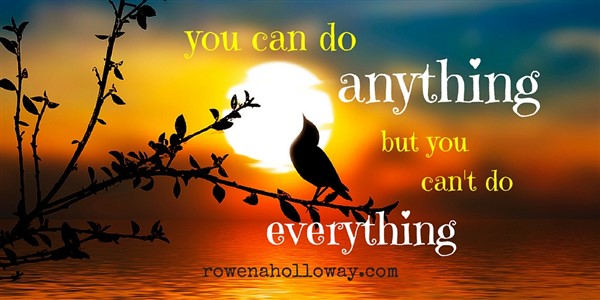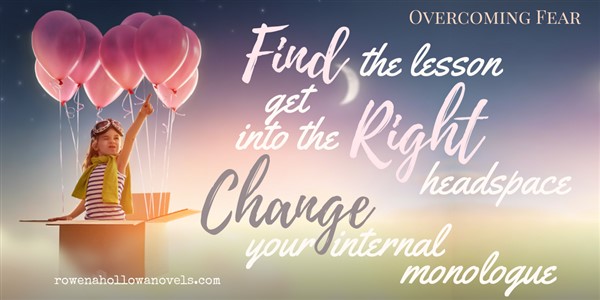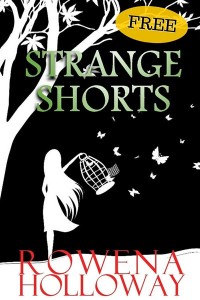Failure seldom stops you. What stops you is the fear of failure.
Jack Lemmon
Imagine this: It’s almost show time. You stand there while your stomach churns and you wish to god you’d just said no and then you could be safe in bed or walking the dog or doing anything other than what you are about to do.
 You know that feeling, right?
You know that feeling, right?
It might be public speaking, submitting your work for a competition or workplace review, it might be turning up to a family gathering when you’ve been estranged for a while. Whatever it is, you wish the floor would swallow you or you could curl into a ball and disappear.
Nerves are normal. Nervous energy can propel us forward.
But when that fear holds us back from doing what we love, when it holds us back from nurturing relationships, our business or our talent, that’s when it becomes destructive.
Why am I telling you this? Because I’ve recently had to face up to some behaviours that have been holding me back. Behaviours that are all tied up in a fear of failure.
Bad Habits
Okay, so I admit it: I may have a few writing blocks. It’s not that I don’t know what to write or how to write or that the blinking cursor makes me break out in a cold sweat, which is what we usually think of as a writer’s block. My problem is that I can’t focus. Whenever I sit down to my desk, determined to write, I let myself get distracted by scheduling social media, creating a book cover (for work I’m yet to complete) or just sit browsing when I should be doing.
Why does this matter? Everyone needs a creative break, a way to refill the reserves before tackling a task. Yet, this has been going on for too long. With regards to writing, my daily habits are becoming bad ones.
The bottom line is that I need to write more books. As an Indie author, a greater presence in stores (physical and online) will help raise my profile. Simple mathematics tells me that I can’t be giving away a free book with email sign-up or putting one or more up as permafree (permanently free) if I only have two novels and an anthology of short stories. Then again, I don’t want to pump out first drafts and offer them to readers–my first drafts are okay but usually contain lots of telling and are nowhere near the polished book I prefer to put my name too. And of course, I’m a writer because I love writing.
At least I hope I still love writing…
So I’m working on identifying and overcoming what’s holding me back so that I can become more prolific. This has led to me confront my…
Fear of Failure
Ever since I began writing I’ve always been able to focus, to spend that necessary time in the chair and put words on the page. It hasn’t always been fruitful, but I have always shown up. Until lately. All through 2016 I struggled to manage the business of writing with the act of writing, partly because I’d begun to wonder if it was worth the sacrifice. Which is weird, don’t you think, to think of something you love doing, something that nurtures your soul, as being not worth the commitment?
There are a lot of issues around that, but the one thing I’ve been forced to confront as the year progressed is my commitment to writing. And I’ve discovered writing is not the issue. When I get into the right headspace I can write with speed and relative eloquence.
It’s the fear of failing at it that is holding me back.
 Overcoming the Fear
Overcoming the Fear
It’s time to get serious. So I went hunting for some advice on how to overcome this fear of failure and have distilled it down to three actions.
1: Find the Lesson
Failures are learning opportunities. As much as we feel shame at the outcome there is always something we can take from it, even if the lesson is how NOT to do something. I’ve previously written about how not to write a novel, and in times of distress or disappointment I have always asked myself ‘what lesson am I supposed to learn from this?’ Funny that until now I hadn’t thought to ask myself that about my writing .
To move forward we must reframe our goal. Make the outcome about learning as much as it is about achieving the goal. We need to ask ourselves the following three questions:
- What can I learn from this?
- How can this experience help me grow as a person?
- What are three positive things I can take from this situation?
I find this last question the most powerful, because we humans seem to find it so much easier to focus on the negatives than the positives. In fact, maybe we should keep a ‘positives’ jar and place in it all the little wins we encounter on our way to our goal. Then, when feeling overwhelmed or low we can take them out and remind ourselves of what we did achieve.
What big lesson did I learn from my failure to meet my writing goals this year?
Well, for that answer I need to go back to some advice I often quote but seem to have forgotten to apply to myself this year: You can do anything, but you can’t to everything.

Remember that, it’s very powerful advice. Of course, the trick lies in working out what we can outsource and what constitutes value for money.
2. Get into the right headspace
Visualising goals is a great way to deal with the fear of the unknown.
When I was hairdressing (my first career) I joined a group organising competition events. It was great fun. I met new people, learned how the world works, and got to network with the giants of my industry. Yet for the first few events I was paralysed with fear. Visualising the venue, the people, the day, what I’d wear, even what I’d say, helped enormously. It’s all about preparation.
A few minutes of visualisation helped reduced the fear.
This is also effective when writing. I visualise myself at the desk, I prepare what I’m going to work on and once ready to write I immerse myself in the scene and in the character’s skin and just write. On those occasions, I produce high word counts. If I’m having trouble focusing I set my timer and make myself sprint write. It’s amazing. I should do more of it.
I know the above actions work for me. I just need to do them. I sometimes do, yet I’m not doing them on a regular enough basis to achieve the outcomes I need—a finished novel, or better yet, more than one. I’ve become so irregular with my fiction writing that when I decided to commit to doing NaNoWriMo at the end of 2016 I was so ambivalent about signing up that although I’d made the decision to join I didn’t take the action until a day or so after it had begun.
3. Re-asses your internal monologue
Back when I was studying business (getting ready for my second career) they used to call this our mental model—the deeply ingrained beliefs that shape the stories we tell ourselves, and even shape how we see the wold around us. It’s that little voice that makes us dismiss (or flat out not believe) a compliment, the little voice that says we were always going to fail and never should have tried.
The key to overcoming fear is identifying your ‘story’.
It can be confronting. But the amazing thing is that our stories though nominally different are often universal.
After much beach walking and talking to myself (my form of cognitive therapy) I’ve confronted my mental model. And here goes…I’m about to admit to you my secret shame.
You see, the story that underlies all my fears is that I’m not good enough. Worse, I worry that people will discover that I’m not good enough and I’ll suffer the humiliation of being exposed as a fraud. That is difficult to admit publicly. Now that I’ve identified it there will be (and have been) people who will see that as a weakness and play on it. Hopefully I’m wise to that these days…I’m not the only one who feels like this. Apparently, it’s a prevalent (aka common) phenomenon. I suppose that’s why I have the courage to share it with you.
Now that I’ve dipped my toe by admitting that, I may as well go all in and admit that where I feel the biggest fraud is in the way I’m published. I’m not published with one of the big five and because my internal story is that I’m not good enough it doesn’t take much for someone to push that button. Usually it’s strangers, but family do it too—unintentionally, I hope.
Fear of Failure Revisited
 If I want to continue writing as a career, I need to be putting words on paper. Specifically, I need to get the first installment of the three book Ashes to Ashes series down and ready for release before the book I’m editing now (which is book two in the series) will be ready. That was my goal in Nov 2016 : 50,000 words—a complete first draft—on “the Joey story” (I’m very creative with my working titles, don’t you think?). NaNoWriMo never sent me my confirmation email so I may have procrastinated long enough that the decision was out of my hands, but I still committed to the goal.
If I want to continue writing as a career, I need to be putting words on paper. Specifically, I need to get the first installment of the three book Ashes to Ashes series down and ready for release before the book I’m editing now (which is book two in the series) will be ready. That was my goal in Nov 2016 : 50,000 words—a complete first draft—on “the Joey story” (I’m very creative with my working titles, don’t you think?). NaNoWriMo never sent me my confirmation email so I may have procrastinated long enough that the decision was out of my hands, but I still committed to the goal.
Here’s how I’m applying the actions outlined above:
Reframing my goal
I’m going to count every day of writing as a win. Every new scene, every writing hour, every new paragraph is a step toward my ultimate goal.
Get into the headspace
The first step is preparation. I have completed all major outstanding business tasks, I have outlined the novel and each scene, and every morning as I walk Alfie I visualise that day’s tasks. When I get home my notebook and laptop are ready, and even a timer is there if I lose focus and need a bit of external motivation.
Addressing my internal monologue
This is probably the hardest to reframe. I’ll start with small steps and focus on words on the page, not beautiful sentences or emotional connections—not yet. If they don’t come in the first draft they will in later drafts. As Elizabeth Gilbert says, Don’t get it good, get it done. I’ll still get it good, just not on the first draft, although you never know.
 What about you? What are your blocks about moving forward with your goals—do you even have blocks? How have you overcome them?
What about you? What are your blocks about moving forward with your goals—do you even have blocks? How have you overcome them?
Share your knowledge in the comments box below. I’d love to hear your stories.
Download a printable PDF poster “3 Ways To Overcome Fear”
If you enjoyed this article, why not join my suspense community? I share with you my favourite books, latest news and reviews, and each newsletter includes an article about writing, reading or the inspiration behind one of my novels. You can also grab a free eBook anthology of short stories by yours truly!

Ten gripping tales of love and relationships. Includes tasters of each of my novels.
Ah yes… the MoFo that is the F-Monster.
Thanks for sharing this part of yourself… says that you’re brave, courages and IMHO, that will outweigh the load of that aforementioned MoFo
Thanks Gabrielle 😀
Hi Rowena. You just said out loud what I imagine many conscientious, intelligent writers think and fear. That you actually care about, fear, or even recognise the inevitable flaws in your pieces and ideas shows that you’re ahead of your game.
Surely it’s when we think we’ve arrived that we’re in the most danger of falling big time. Hang in there and believe in yourself. After all it really is up to you to do that first. Best wishes, Jay Xxx